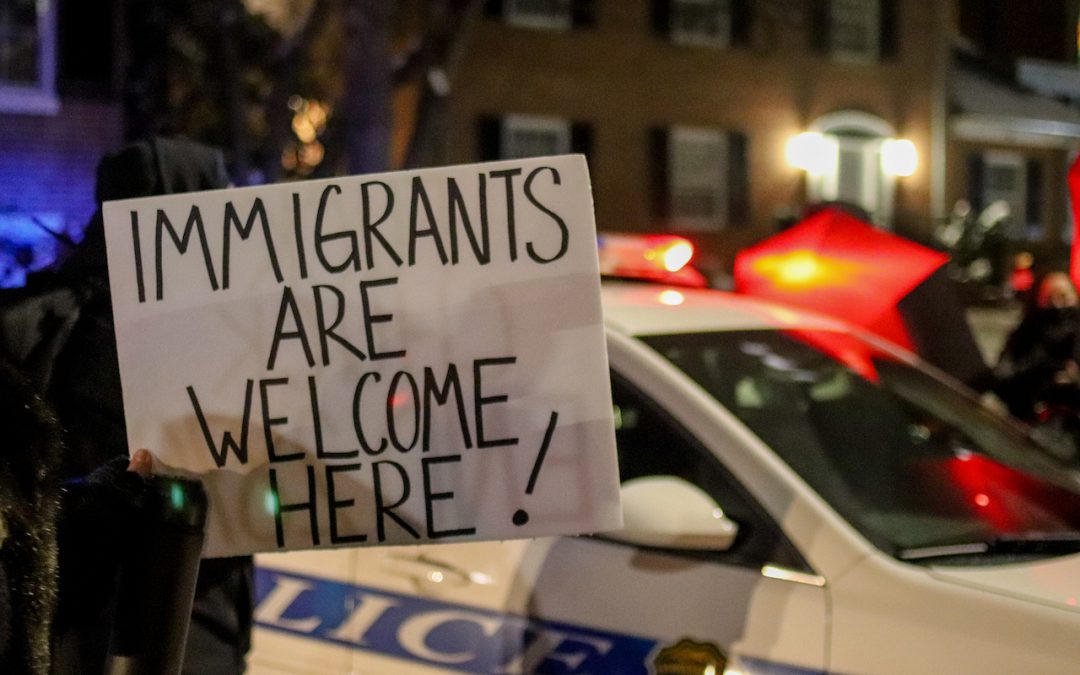WASHINGTON — America’s immigration restrictions limiting visas for highly skilled workers are forcing such workers to go to other countries and causing a brain drain in the U.S., advocates and the head of a House subcommittee said Tuesday.
“If we want to compete in an increasingly global and technology-driven marketplace, we have to do what we failed to do for the past 30 years, which is to reform our immigration system to respond to the needs of our country,” Democratic Rep. Zoe Lofgren of California, chairwoman of the House Judiciary Committee’s subcommittee on immigration, said at a hearing on the country’s ability to compete in the global economy.
Jennifer Young, CEO of Technology Councils of North America, said that U.S. immigration policies have created visa backlogs as well as more cumbersome processes for green card and citizenship applications, often forcing international students and highly skilled immigrant workers to leave for other countries with less restrictive immigration laws.
“What we are seeing right now is that instead of going back to their home country, they choose to go to Canada because they have specifically targeted tech talents and made it easier and faster than the United States,” said Young, who testified at the subcommittee’s hearing.
Lofgren said Toronto’s tech economy has been growing at a faster rate than Silicon Valley’s economy “because their immigrant policies build flexibility and stability to attract highly-skilled immigrants, including those that we couldn’t accommodate.”
Former President Donald Trump implemented or proposed several immigration rule changes to make the screening process more rigorous, which he said would curb fraud in applications. In April 2020, Trump issued an executive order to stop the entry of immigrant workers seeking permanent residency in the country. The order said the policy would “protect already disadvantaged and unemployed Americans from the threat of competition for scarce jobs” at a time that the COVID-10 pandemic was already causing unemployment to rise.
Before Trump left office, he also attempted to overhaul the H-1B work visa rules to end the current lottery system and replace it with a system based on salary levels, with those with higher salaries getting preferred treatment. An H-1B visa is generally the only practical way for highly skilled foreign nationals, including recent international students, to work long-term in the U.S.
But many Republican lawmakers are calling for an examination of the current employment visa system to avoid fraud and exploitation that they say hurts American workers.
Rep. Tom McClintock of California, the top Republican on the subcommittee, said that immigrant workers who abuse the current H-1B or other programs for highly skilled workers hurt pay and benefits for local American workers and even other foreign workers because the competition drives down wages. Ronil Hira, a professor of political science at Howard University in Washington, D.C., suggesting stricter scrutiny and screening processes for visa applications.
“The majority of H-1B workers are competing with, rather than complementing, the U.S. workforce. Their hiring and employment are adversely affecting the wages and working conditions of U.S. workers,” Hira said.
Since 2016, the denial rate for H-1B visas has jumped, according to data collected by the National Foundation for American Policy. In fiscal 2019, U.S. Citizenship and Immigration Services denied 21% of the H-1B petitions for initial employment, compared with 6% in fiscal 2015, and denied 12% of the petitions for continuing employment approval in fiscal 19 compared with 3% in fiscal 15.
Among those highly skilled foreign workers, the majority of H-1B workers are in science, technology, engineering and math-related fields, such as computer science, artificial intelligence and health care. Silicon Valley tech giants such as Amazon, Google, Microsoft and Apple rely heavily on these workers and filed the most H-1B visa petitions in 2021, according to data from MyVisaJobs.com.
Young said that losing talented workers to other countries is a workforce problem that is damaging the country’s ability to compete with other countries, such as China and India. According to a Bureau of Labor Statistics study from 2013, it was projected that by 2020, there would be 1.4 million computer-science-related jobs available in the United States but only 400,000 American computer science graduates with the skills for those jobs.
“The United States currently is unable to fill many roles within technology companies that require highly skilled people,” Young said. “Take the hardcore software engineer as an example. They are typically the architect of the product. They’re the ones that are developing all of it. Without them, companies don’t exist.”

